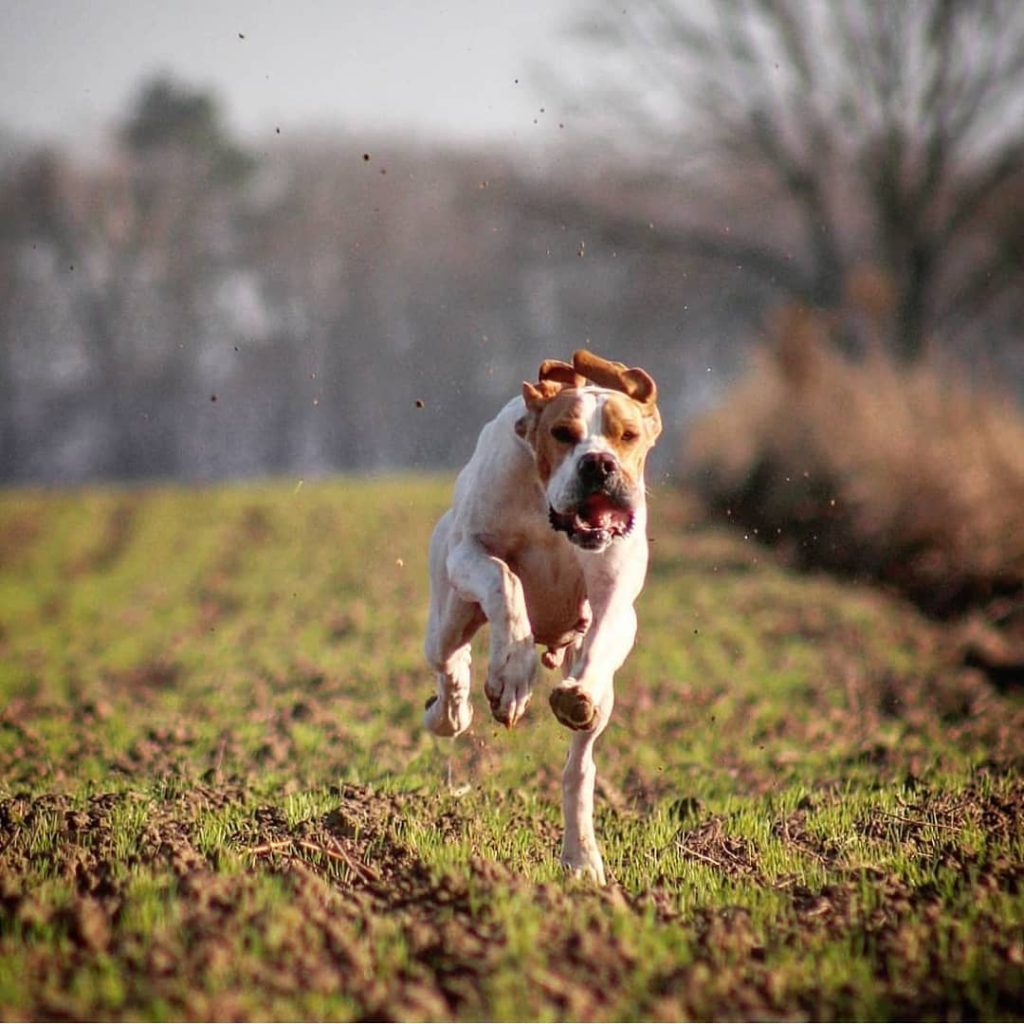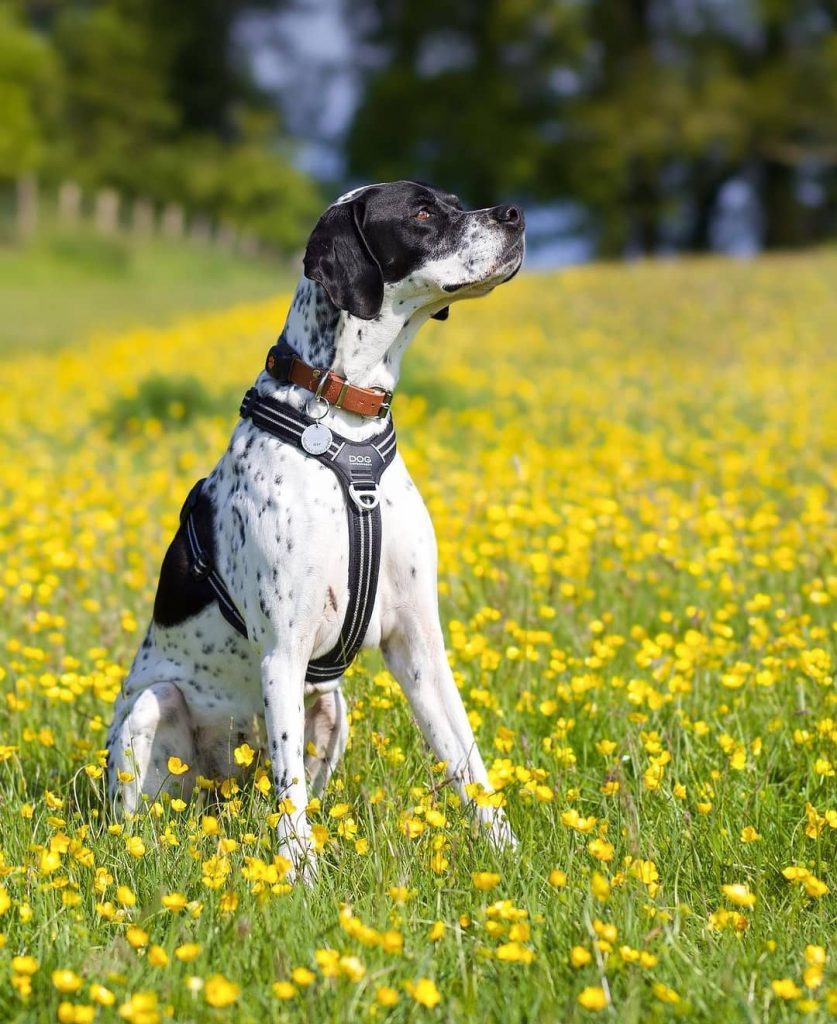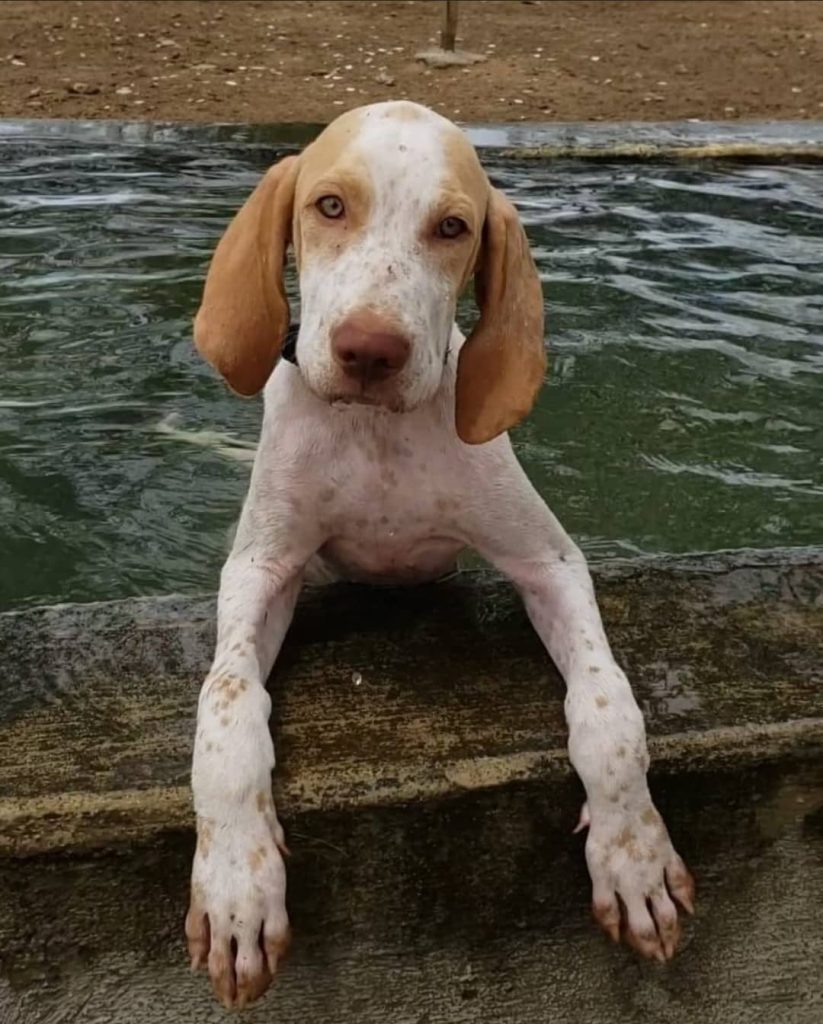Pointers, renowned for their intelligence and energy, are a fascinating breed with unique training requirements. These dogs have a rich history, originating from a lineage that includes Spanish, Portuguese, Bracco Italiano, and French Pointers, Greyhounds, Setters, Bloodhounds, and Foxhounds. Primarily bred for training a pointing dog rather than retrieving, they exhibit traits like high energy, intelligence, and independence, which shape their training needs.

Training a Pointer is not just about teaching commands; it’s about understanding their intrinsic qualities. These dogs are known for their even-tempered, strong-willed nature, making them both a delight and a challenge to train. Unlike many other gundogs, Pointers work more independently and tend to roam further from their handlers, demanding a training approach that respects their instincts and abilities. For a successful training experience, it’s crucial for the dog owner to establish a strong bond and mutual understanding with their Pointer
Early training focuses on socialization and confidence-building, which is crucial for developing a well-adjusted dog. As Pointers grow, their training must evolve to address their changing physical and mental needs. Adolescent Pointers, for instance, undergo hormonal changes that can affect their behavior, necessitating a revision of foundational training.
Moreover, the versatility of Pointers, especially the German Shorthaired Pointers (GSPs), is evident in their ability to excel in various fields such as obedience, hunt tests, conformation, and agility. This versatility underscores the importance of a comprehensive training approach that harnesses their energy and intelligence.
In summary, training a young dog Pointer is a journey that requires patience, understanding, and a tailored approach that aligns with their unique characteristics and stages of development. The subsequent sections will delve deeper into the various stages of training, offering insights and tips to help you effectively train your Pointer, whether for companionship, competition, or work.
Early Training Stages for Pointer Pup
Behavioral Management in Young Puppies
The early stages of a Pointer’s life are crucial for setting a foundation for future training. During puppyhood, the focus should be heavily on socialization and building confidence. Socialization is about exposing the puppy to various stimuli and ensuring they have positive experiences. It is essential to introduce them to different people, environments, and other dogs in a controlled and reassuring manner. Given their high energy and prey-driven nature, early training is vital to channel their intelligence and independence positively.
Pointers, especially those of show-lines, might show their pointing instincts as early as two months old. This early display of innate skills underscores the importance of beginning training at a young age. Establishing a solid working relationship early on can help mitigate the breed’s tendency for aloofness, making future training more effective.

Comprehensive Training Approach for Pointers
A comprehensive approach to bird dog Pointer training involves more than just basic obedience. Since Pointers are bred to roam and work independently, their training should also focus on developing their natural abilities. Group classes can effectively get puppies used to be around other dogs and learning to stay engaged with their handlers.
Impulse control is a crucial aspect of training, especially for young pups of a breed with a strong hunting background like Pointers. Training your Pointer to manage distractions and respond to commands even in stimulating environments is essential for their safety and effectiveness as a working dog.
General Tips for Effective Training
- Consistency is Key: Maintain a consistent approach in training sessions. Pointers respond well to a structured routine that reinforces learned behaviors.
- Patience and Understanding: Training might be challenging, given their independence. Patience is essential in guiding them through the learning process.
- Positive Reinforcement: Utilize treats, praise, and affection as rewards. Positive reinforcement encourages repeating desired behaviors and strengthens the bond between you and your Pointer.
- Tailor Training to Instincts: Incorporate activities that align with the Pointer’s instincts, such as scent games or structured fetch, to make training sessions more engaging and effective.
- Avoid Negative Reinforcement: Pointers can be sensitive to harsh methods. Avoid negative reinforcement techniques, as they can lead to fear or mistrust.
- Early Socialization: Introduce your Pointer puppy to various environments, animals, and people early to develop a well-adjusted and confident adult dog.
- Build on Natural Abilities: Emphasize training that enhances their innate skills like pointing and retrieving, making the process more intuitive and rewarding for the dog.
- Regular Exercise: Ensure ample physical activity to channel their high energy levels productively, reducing the likelihood of behavioral issues.
- Engage in Mental Stimulation: Alongside physical exercise, provide mental challenges to keep their intelligent minds active and prevent boredom.
- Seek Professional Guidance: If you encounter challenges, don’t hesitate to consult a professional dog trainer, especially one experienced with Pointers or similar breeds.
Developmental Milestones in Point Dog Training
Crucial Learning at 8–9 Weeks
At 8–9 weeks, a Pointer puppy is ready to begin their journey in earnest. This period is filled with ‘firsts’ and is a crucial time for foundational learning. Key steps include:
- Home Introduction: Welcoming the GSP into your family, making them comfortable in their new environment.
- Socialization: Start introducing them to various people. Interactions need to be non-intimidating, allowing the puppy to approach people in their own time to avoid fear stages.

Advancing Skills at 12–14 Weeks
As the Pointer puppy grows, their training should advance accordingly. This phase should focus on:
- Basic Commands: Teach simple commands like sit, stay, and come.
- Continued Socialization: Further exposure to different environments, people, and animals.
- Leash Training: Getting them used to walking on a leash.
Progressing Further at 4 Months
By four months, a Pointer puppy’s training should include:
- Enhanced Obedience: Building on basic commands, introducing more complex instructions.
- Introduction to Field Training: If intended for hunting or fieldwork, start introducing concepts relevant to these activities in a controlled manner.
Expanding Training at 6 Months and Beyond
As the Pointer puppy approaches six months:
- Reinforcing Training: This is the age where Pointers can become more challenging. Reinforce earlier training to maintain discipline and control.
- Advanced Socialization and Training: Expose them to more complex environments and situations, preparing them for adulthood.
Specialized Training for Pointers
Choosing the Right Puppy for Training
Selecting the right puppy for training is a pivotal step. Look for a puppy that shows a balance of curiosity and caution, a sign of intelligence and temperament suitable for training. Observing the puppy’s interaction with its littermates and response to new environments can provide valuable insights into its personality and potential for training.
Field Training Essentials
Field training is essential for dogs, mainly if they are intended for hunting or field sports. This training should encompass obedience, retrieving, pointing, and shooting steadiness. A well-rounded field training program prepares Pointers for the complex tasks they are bred for, making them adept in various field situations.
Preparing for Working Tests
Working tests are competitions that evaluate a Pointer’s abilities in a field setting. Preparing for these tests involves training the dog in skills such as retrieving, tracking, and pointing. The focus should be on building the dog’s natural abilities and instincts, ensuring they perform optimally in these dog work tests.
Training for Hunting Skills

Training Pointers for hunting involves developing their natural pointing and retrieving instincts. This includes teaching them to search for games, point, and retrieve under various conditions. A successful hunting dog must emphasize steadiness, control, and responsiveness to commands during training.
Mastering Retrieving Techniques
Retrieving is critical for Pointers, especially in hunting and field trials. Training should focus on developing a soft mouth to handle the game gently and responsiveness to retrieve commands. This training often begins with simple fetch games and gradually incorporates more complex retrieving scenarios. Introducing your pup to birds during this training process can help simulate real-life hunting situations and enhance their natural instincts.
Waterwork Training
For Pointers, waterwork training is essential, especially for those involved in waterfowl hunting. This training includes swimming, retrieving from water, and being comfortable and efficient in aquatic environments. Introducing water gradually and making the experience positive is critical to successful waterwork training.
Spring Pointing Tests Preparation
Spring Pointing Tests evaluate a Pointer’s natural ability to point game. Preparation for these tests involves honing the dog’s pointing instincts and ensuring they demonstrate control and steadiness in the presence of the game. Training should simulate real-life hunting scenarios to prepare them effectively for these tests.
Field Trials Training
Training for field trials requires a high level of discipline and skill. This training builds upon the foundational fieldwork and focuses on refining the Pointer’s abilities to meet the rigorous standards of field trial competitions. Success in field trials is a testament to the dog’s training, natural ability, and the handler’s skill.
Conclusion
In conclusion, training a Pointer is a dedication, understanding, and adaptability journey. From the early stages of puppyhood through the more advanced phases of specialized training, each step plays a vital role in shaping these intelligent and energetic dogs into capable companions, whether in the field, at home, or in competition. The key to success lies in harnessing their instincts and abilities, coupled with consistent, positive reinforcement and a deep understanding of the breed’s unique characteristics.
As we have seen, dogs are not just pets; they are partners that require a commitment to ongoing training and development. Their intelligence and versatility make them excellent in various roles, but they also need an engaged, informed handler who can provide the guidance and structure they thrive on. Whether aiming for excellence in field trials, developing hunting skills, or simply enjoying a well-behaved family companion, the journey with a Pointer is as rewarding as it is challenging.
Training a Pointer is about building a bond based on mutual respect and understanding. It’s a journey that brings out the best in the dog and the trainer, resulting in a partnership that exemplifies the extraordinary capabilities of this remarkable breed.
